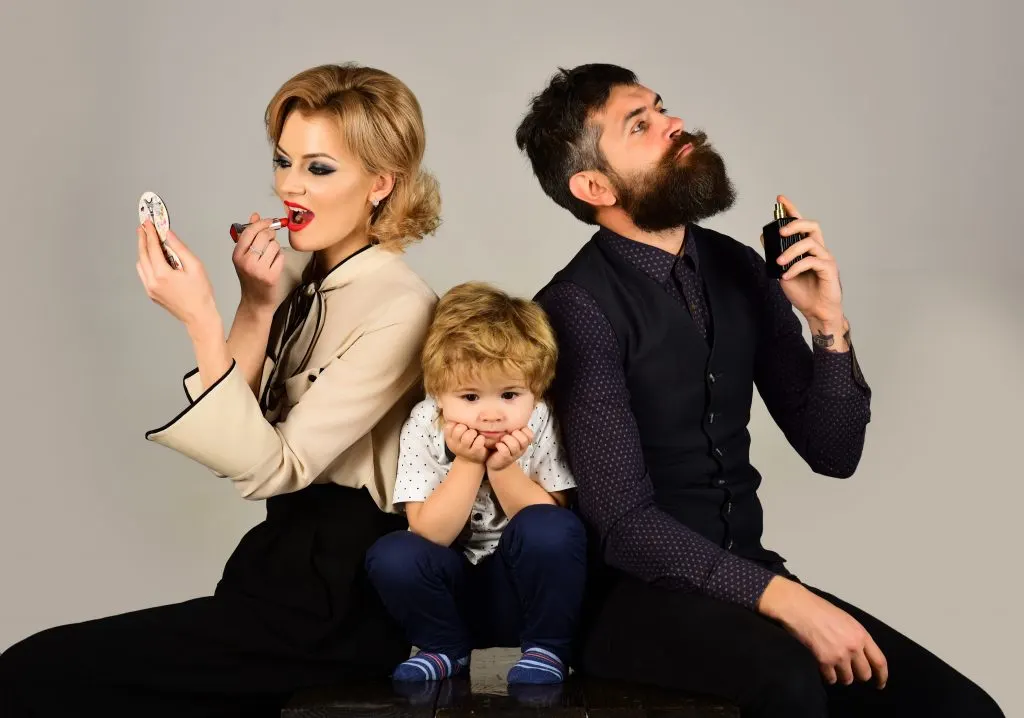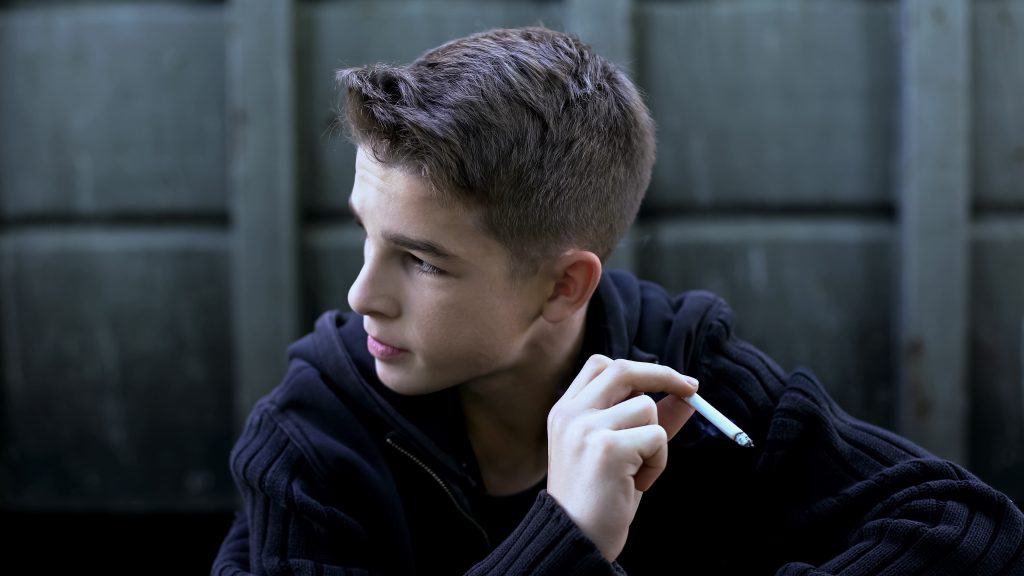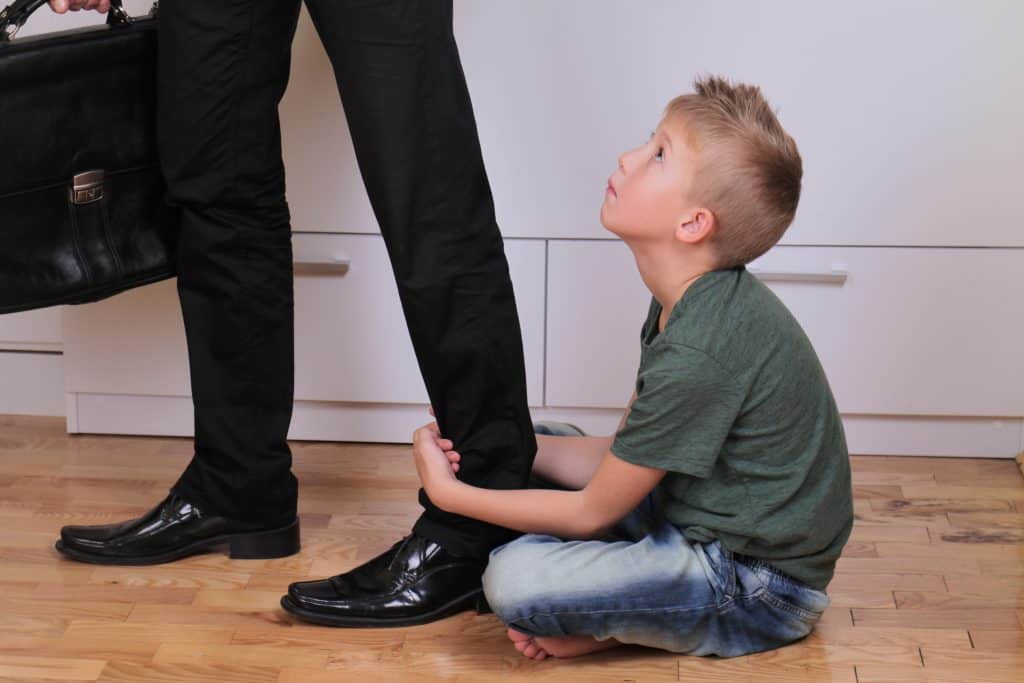Toxic parenting is difficult to recognize, and many parents only realize that they have grown up in such an environment after becoming adults, but there are also those who are completely unaware of it.
There are many types of such toxicity, from aggressive parents to those who are distracted and don’t seem to see or hear their child.
In fact, there are many parents who poison their children.
We can list alcoholics, chaotic parents, those who hold children back because they want to follow their dreams instead of their own, but also verbal abusers, who with their attitudes and comments kill their children’s self-confidence, as they constantly humiliate them, even in front of other people.
All this can have serious psychological consequences for a child.
These seven signs show growing up with parents who have poisoned your mind:
1. If you’re prone to extreme emotions, your parents were toxic.

This can be the result of a toxic upbringing.
If you go crazy over things that aren’t important at all and have nothing to do with anything, then it’s an indicator that in your head “all the dice aren’t arranged properly”.
For example, someone decides to work for a non-profit organization and thus realize his dream, but becomes nervous if someone mentions his salary or money.
This may indicate that his parents aggressively disapproved of certain things in his childhood, such as the fact that having a small salary was shameful.
Growing up in such an environment can include feelings of guilt, irritation, fear of abandonment or irrational anger.
2. If your parents have poisoned your mind, you’re an adult who doesn’t really know who he/she is.

Many children of toxic parents have great difficulty determining who they really are, what they’re like…
There are three areas in which they lack self-confidence: who they are, how they feel and what they want.
This happens because, due to unhealthy relationships with parents, for many years they’ve been afraid to express themselves and their feelings as they are, but they’ve suppressed it and hidden it from their parents.
In other words, they didn’t have the opportunity to pay attention to their own growth and development, but became insecure and confused people.
3. You spend your time criticizing yourself!

This is the key.
Psychology defines self-confidence as a sense of self-worth, and children of toxic parents often have serious problems in this area.
Many of them are held captive by their own “inner voice”, meaning they unrealistically criticize themselves, just as their parents did.
For example, they were constantly told they were stupid, worthless, unworthy of anything, a complete failure, human garbage….
People who grew up like this, meaning they were never good enough for their parents, need to bear in mind that their parents were selfish people, whose words to their own child spoke exclusively of them, how insensitive they are.
4. Your parents never taught you to accept rejection and failure.

Children of toxic parents are often prone to frightened reactions to anything other than “stellar” success.
Again, insecurity and self-doubt come to the fore, because of the parents who treated them this way.
The relationship goes something like this: a child has to be the best at everything, or he’s no good at anything.
This is when the parents’ complexes come to the fore.
For example, a parent insists that her son go to university because he didn’t shine at school and because of this he feels miserable.
Or a mother forces her daughter to be the prettiest and thus teaches her that physical appearance is the most important thing in life, and she does this only because she has never been satisfied with her appearance and has been constantly jealous of others who are more beautiful.
These children can have huge problems later on, because they don’t want to accept that there are people who are more successful or better-looking than they are.
5. Your parents have never been very supportive.

This is a fairly common problem, with lifelong consequences for the child.
It can include mentally or physically abusive parents, but also anyone who didn’t focus on their children, their quality upbringing and creating a sense of security.
This includes parents of spoiled children, who think they’re good parents because they give in to their children in everything, but they’re under a nasty illusion.
If a child can do as they please with their parents, then they can’t rely on them and over time, due to the lack of support in life, they become precarious.
This can later affect their relationships with others and unhealthy relationships with their partner, but also with their children.
After growing up, these children unconsciously believe that it’s perfectly normal for others to treat them the way their parents treated them and often stay in such unhealthy relationships, instead of running away from them, as someone who grew up in a mentally healthy family would.
6. You feel responsible for your parents’ behavior.

Children who grow up in such an environment often don’t admit that their parents have done anything wrong.
The feeling of guilt is so deeply rooted in their heads that it’s hard to get rid of.
As children, they could justify their parents for beating them mercilessly, because they really deserved it, or neglecting them because they didn’t deserve their attention and love.
Science has shown that children of toxic parents find excuses for their behavior, because it’s hard for them to accept that their parents don’t love them as they should.
Many of them, despite the fact that their parents did bad things when they were children, still love them and find it hard to accept that the problem was with the parents, not with them.
7. You put your emotional needs last.

Whether growing up with a verbally or physically abusive parent, it’s a manipulative relationship because of which such a child will put their own emotional needs in last place.
And it’s probably because of fear of what others will think, instead of putting what’s best for the relationship first.
These children repress their feelings or anger as they grow up, because they’re afraid that if they express it, problems will arise.
But, sometimes an “eruption” happens, so many people are then surprised, because “he was calm, good-natured and withdrawn, so what happened to him all of a sudden?”.
Hi all, I am Sidney, an accountant, a hobbyist photographer, and a mother to two sweet girls who are my motivation. I love sharing the tips and tricks I gained all these years I’ve been a mother. I hope it will help you!

